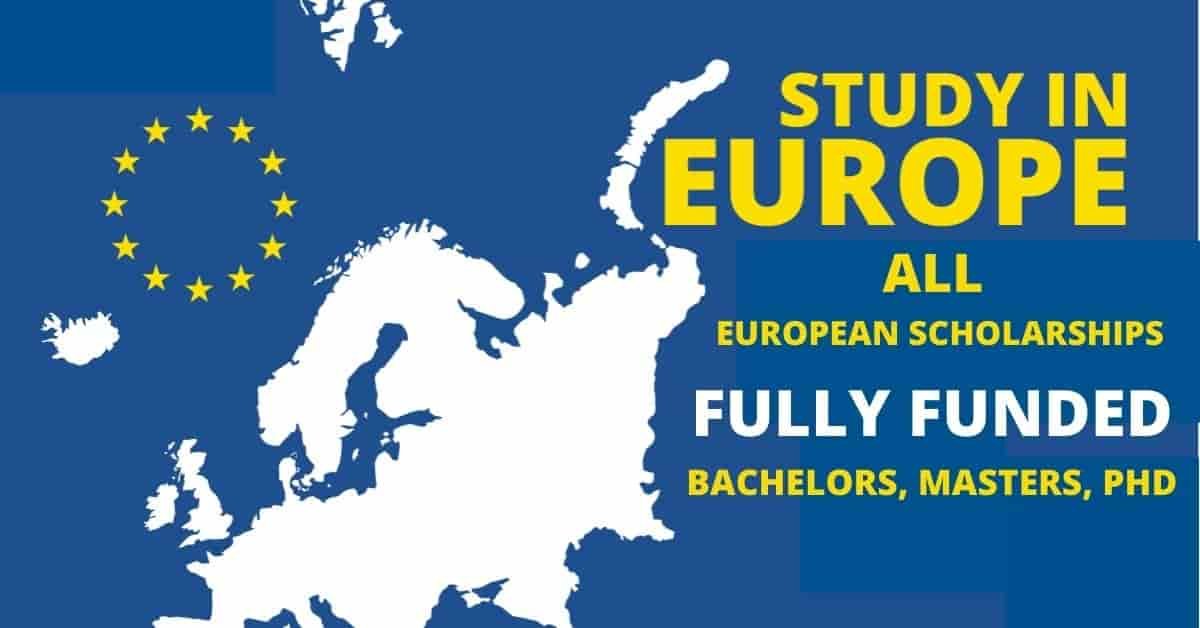Top 8 Fully Funded Scholarships in Cyprus
We have compiled the list of Fully Funded Scholarships in Cyprus available for International Students.
If you’re looking to study abroad in Cyprus, getting a scholarship can make the difference between attending the school of your dreams and staying home because you can’t afford it. Luckily, there are plenty of fully funded scholarships out there that are just waiting to be applied to by students like you who want to earn their degree while immersing themselves in the country’s rich history and culture. Read on to learn more about eight top-rated fully funded scholarships in Cyprus, as well as how to put your best foot forward when applying!
Fully Funded Scholarships in Cyprus
The cost of studying abroad in Cyprus varies depending on a variety of factors, such as whether you are an EU citizen or not, whether you want to study undergraduate or postgraduate, and your choice of course. For example, according to our research at Go Overseas, it would cost around €10-15,000 (around £8,500) per year to study abroad as an undergraduate student in Cypriot universities. You will probably need between €20-30k (around £17k) per year if you want to go overseas for your postgraduate studies. However, there are plenty of opportunities out there that offer scholarships that can significantly lower these costs!
Check out some of our top picks below:
The British Government’s Chevening Scholarship Programme awards up to 1000 fully funded places each year for eligible candidates from outside of Britain. In order to be eligible, you must be applying for a Master’s degree in any subject area except medicine, dentistry or veterinary science. The scholarship covers tuition fees plus an allowance which is dependent on where you’re living and how many dependents you have. The total value of your award will vary depending on these factors but it could be worth around £20,000 per year (around €23k). Applicants must also demonstrate leadership potential through extracurricular activities such as voluntary work or sport. The deadline for applications is typically at least one month before study starts so keep that in mind when planning your application!
CIES – Centre International d’Etudes Supérieures offers scholarships to students from developing countries who are interested in studying abroad at one of their partner universities in Europe.
1) The National University of Cyprus Scholarship
The National University of Cyprus has been in operation since 1989. The university offers courses that lead to an Undergraduate, Master’s, and Doctorate degree. All students who have applied to The National University of Cyprus have their tuition costs paid by the government, regardless of their status as a full-time or part-time student. These fully funded scholarships are awarded on a first come, first served basis and there is no means testing associated with them. To apply for these scholarships, you must be a citizen of Cyprus or hold dual citizenship. You must also meet all admission requirements for your chosen program at The National University of Cyprus. You will need to submit your application for admission directly through their website before submitting your scholarship application. If you are awarded one of these fully funded scholarships, you will be required to take out only enough loans to cover your living expenses while studying at The National University of Cyprus. For more information about how to apply for these scholarships, visit The National University of Cyprus’ website.
2) Scholarship Sponsored by the European Commission
The Commission runs several Erasmus+ scholarship schemes that offer excellent opportunities for students to undertake full or part-time study during a summer vacation, semester break or entire academic year. The aim of these programmes is to encourage mobility between countries and increase students’ employability by fostering cultural and linguistic skills. Each programme provides up to €4,000 for travel and living expenses for each participating student. These fully funded scholarships are awarded on a competitive basis; candidates will need high grades (B/A average) and strong language skills (level B2 of ESOL). Candidates must be nationals of an EU country as well as non-EU citizens with eligible immigration status from one of these countries.
3) University of Nicosia Scholarships
The University of Nicosia (UNIC) is a non-profit, private and independent institution of higher education established in 1980. The university awards undergraduate and postgraduate degrees at its two campuses: one located near Nicosia (Cyprus) and another campus located in Kyrenia (North of Cyprus). Students who wish to take advantage of an English-taught program must apply for one at UNIC’s international branch. A fully funded scholarship covers accommodation and living expenses as well as tuition fees. The scholarship also includes a monthly stipend of €1,000.00 EUR per month from September 2017 until August 2018.
To be eligible for admission into any undergraduate or postgraduate degree program offered by UNIC, applicants must meet all academic requirements specified by their chosen faculty/school as well as all other relevant admission criteria set forth by UNIC.
4) The Foundation for International Education Scholarship
In many cases, scholarships are designed to benefit people from a country or with a certain academic focus. The scholarship for Cypriot students is part of a wider campaign by Financing for Education that aims to provide fully funded scholarships for students around the world. The FIE Foundation provides funding to send over 2000 students across more than 50 countries on fully funded one-year master’s degrees. Students will have access to top business schools and universities, including London Business School, IE Business School and Lancaster University Management School. It is open exclusively to citizens of countries where there is no existing exchange program between that country and Great Britain – one of those countries is Cyprus! Interested? Read more about it here! (opens in new window)
5) The American University of Cyprus Scholarship
Tawjihi or the matriculation exam is considered to be a student’s ticket to higher education, but with tuition cost reaching up to 100,000 euro per year, most students cannot afford it. Luckily for them, however, scholarships are available that cover almost 100% of their tuition fees. The American University of Cyprus (AUC) offers two scholarship programs: one is for international students who have applied and been accepted into an undergraduate program; another one is for Greek Cypriot students from any discipline who wish to pursue a master’s degree at AUC. Both scholarship programs offer full tuition fee coverage for four years of study. Students must meet certain criteria to qualify for these scholarships, including high academic achievement, financial need and excellent English language skills. In addition to fully funded tuition fees, students also receive a monthly stipend to cover living expenses during their studies.
6) The Open Society Foundation
is a non-profit organisation founded by George Soros, with offices across Europe, Asia and America. It aims to build vibrant and tolerant democracies whose governments are accountable to their citizens. Within Europe, it focuses on three priorities: development of open societies; promotion of human rights; and strengthening regional institutions. In Africa, Latin America, South East Asia and central Asia, its aim is to build vibrant and tolerant democracies whose governments are accountable to their citizens as well as serve as an accountable partner of civil society groups. It also supports various international causes such as combating climate change or promoting open borders within Europe. The foundation supports both direct projects (by providing grants) and grassroots organisations that implement particular policies throughout its funded regions globally. The Open Society Foundation has awarded scholarships since 1979, when Central European University was established. Since then, over 1,000 students have been awarded scholarships from OSF. These scholarships are usually granted for master’s degrees at universities located in Central and Eastern Europe, including Bosnia & Herzegovina, Bulgaria, Croatia, Hungary, Macedonia and Serbia. Most of these scholarships are fully funded for one year but some can be extended up to two years depending on individual circumstances. All applicants must have excellent academic records as well as demonstrate financial need through submitting proof of income from family members/sponsors if applicable.
7) George Soros Scholarship Foundation
The George Soros Scholarship Foundation aims to expand educational opportunities for students in order to help them reach their full potential. Recipients of a scholarship from any of their five schools receive fully funded tuition as well as other funds for travel, boarding and books. About 20 scholarships are awarded each year. The scholarship is open to Cypriot and non-Cypriot applicants who are already accepted into one of Foundation’s five schools: University of Sussex, University of Edinburgh, Southampton University (UK), Utrecht University (The Netherlands) or Central European University (Hungary). The scholarship is based on academic merit and financial need. Applicants must be full-time undergraduate students when applying and studying at one of Foundation’s partner institutions upon receiving funding. European Union Erasmus Mundus Joint Masters Degrees: This program offers EU students an opportunity to pursue two masters degrees simultaneously by spending two years abroad and two years at home. Students will study two different master’s degrees with two different universities in either Europe or Canada. Students will not only gain valuable knowledge but also experience different cultures while earning credits towards both degrees. Students can apply for up to four programs that offer different combinations of degree types, duration and locations across Europe and Canada. They may also apply for up to three programs within one country if they wish to stay close together with friends or family members who live there. While many programs require that you speak French or English, some do not have language requirements so check before applying!
8) BILIKE Turkey – Youth Exchange Programme
BiliLike offers a full-paid place for young Cypriots to work and study in Turkey during October to January. The project is funded by a consortium of Turkish businesses, however participants do not have to be Turkish-speaking or have any background in Turkish studies. Applications are now open for 2016/17 and must be submitted before 23:59 on 28 March 2016. Once selected, successful candidates will receive a monthly allowance of CY£1,300 (approx. €250) plus CY£500 (approx. €100) per month as travel expenses; they will also be provided with a full apartment while they stay in Turkey. This programme aims to promote cultural exchange between young people from both countries through its focus on entrepreneurship, business development and cross-cultural understanding. As well as gaining valuable experience abroad, participants will develop skills such as communication, leadership and teamwork that can help them later in their careers. Programmes like these can be great opportunities for students who want to get ahead of their peers but don’t necessarily have access to financial support from their families. If you’re under 30 years old and you’re interested in taking part in an international exchange programme then check out our guide here – we’ve got all you need to know about getting your first professional experience abroad!
How To Get Admission to Cyprus Universities
The Cypriot education system has been adapted to meet both national and international requirements, offering undergraduate, postgraduate, and doctoral programs. The island’s first university was established in 1989—the European University of Cyprus (EUC)—while more recent additions include Intercollege (2009) and the University of Nicosia (2012). Cyprus operates a two-semester system. Full-time degrees are three years long; part-time students have six years to complete their degrees. Only EU citizens can apply for EUC; students outside of Europe may only study at Unitec via an offshore program offered through an affiliated institution or school back home.
If you want to be eligible for admission into these universities, you must meet their minimum entry requirements.
See below:
A level Grades Minimum Requirements
GCE A Level C 6+ in relevant subjects
GCE AS Level D 6+ pass grades
GCE O Level E 6+ pass grades + GCSE English Language 5+ GCSE Maths 4+. One of these must be at grade B or above.




